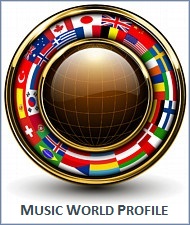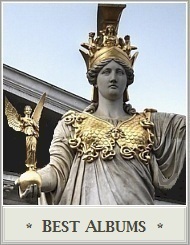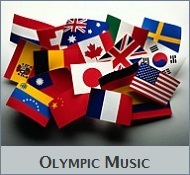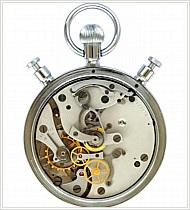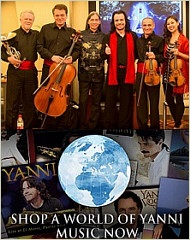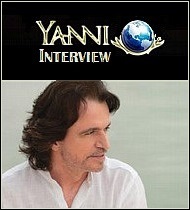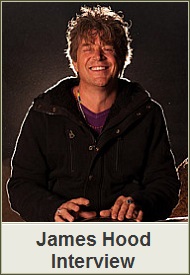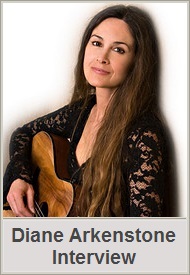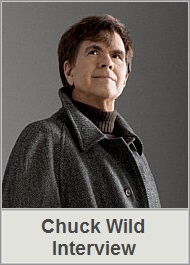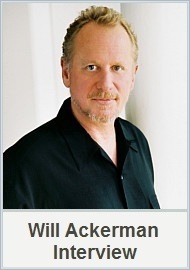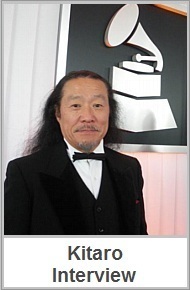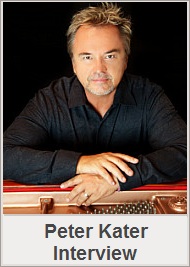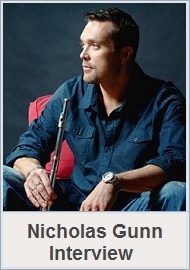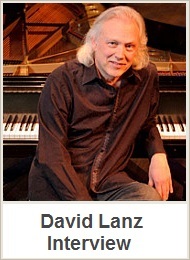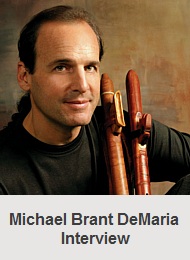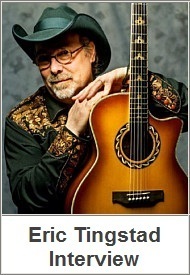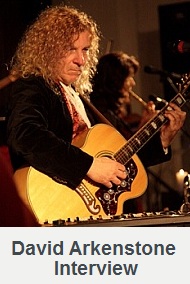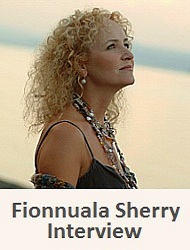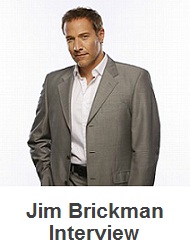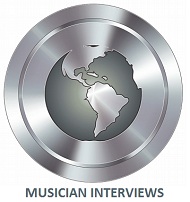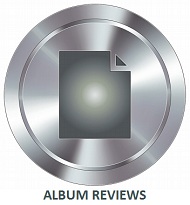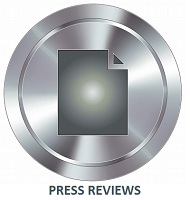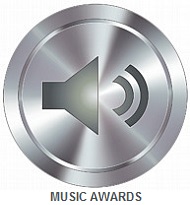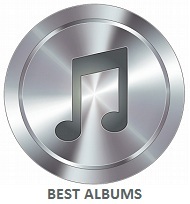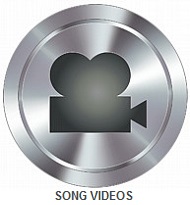
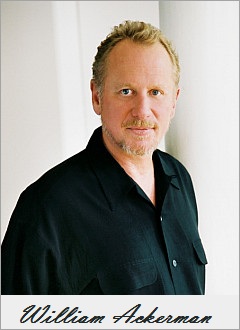 New Age Music World is pleased to present an in-depth, 2012 interview with GRAMMY® Award-winning guitarist, producer, and Windham Hill Records founder Will Ackerman.
New Age Music World is pleased to present an in-depth, 2012 interview with GRAMMY® Award-winning guitarist, producer, and Windham Hill Records founder Will Ackerman.
John P. Olsen: Thank you for accepting my invitation for this interview Will. It’s funny since I feel like I already know you in a way since I have written, and plan to write, reviews for artists who have their newest album produced by you at your Imaginary Road Studio in Vermont. It’s a privilege to finally meet you Will.
Will Ackerman: Hi John, I’ve been admiring what you’ve been doing online for some time and am delighted to have a chance to talk with you.
John: Many of these artists have received award recognition with albums that you produced. Many are now top ranked artists. To what degree does a producer ultimately affect the success of a music recording would you say?
Will Ackerman: Perhaps this is a crafty test of my humility? I hope I pass. Perhaps this is a question better asked of the musicians I’ve worked with. They’re better able to tell you how, specifically, I influenced their work. The process of producing is not at all formulaic for me; each project and human being has their own specific needs and my job is, as much as anything, to be conscious of what their needs are. How active I am in shaping a project is also a very individual matter.
In some cases I am simply helping to create a standard of excellence for the players to achieve in their recordings and in other instances I’m getting into the arranging of the work itself and being very active in envisioning how the material might be dramatically affected by additional production. It really is all over the place and I guess I’d say that my proudest achievement is to figure out where I can best be of help and respond to the person I’m working with rather than imposing the same set of Ackerman rules upon everyone.
John: Some may have a limited knowledge of a record or music producer’s role, and how a producer can greatly influence an artist’s instrumental music composition. Would you provide some details specific to your production services?
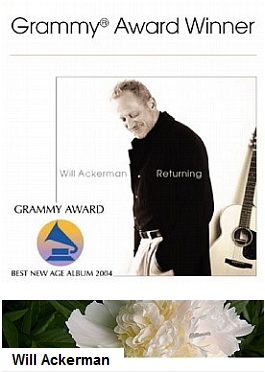 Will Ackerman: Again, the role of producer is simply all over the place. Looking back to Windham Hill days, I think of how my utterly subjective and spontaneous decision to edit George Winston’s Colors/Dance into the epic ten minute piece we know as opposed to the three minute piece it was intended to be is an example of how my instincts manifested themselves.
Will Ackerman: Again, the role of producer is simply all over the place. Looking back to Windham Hill days, I think of how my utterly subjective and spontaneous decision to edit George Winston’s Colors/Dance into the epic ten minute piece we know as opposed to the three minute piece it was intended to be is an example of how my instincts manifested themselves.
Likewise the decision engineer Steve Miller and I made on the dramatic guitar sound for Michael Hedges’ Ariel Boundaries was a milestone. Michael was initially outraged with the liberties we’d taken with what he heard as a simpler acoustic piece. Steve had provided an opportunity and I jumped at it. Michael needed to take a walk for about an hour before coming back to the board to listen, still somewhat incredulous that both Steve and I loved the sound.
I think this story tells a lot about how I work. It’s very subjective, intuitive and flexible. It’s a series of almost binary questions… yes and no… go there or don’t go there? I simply have to trust my instincts and earn the artists trust in those instincts as well. However much success I’ve had and can point to, each new artist I need work with needs to learn that they can trust me. That trust means more to me than anything. I take it very seriously.
John: I have more questions related to your present day role as a producer, but would you first like to tell us how your career began and how your business has progressed over the years?
Will Ackerman: I recorded my first album in 1975. An engineer named Scott Saxon offered to allow me to record free of charge if he was listed as producer and received a royalty. Not having a lot of dough in those days, I easily agreed. Scott then produced my second record, It Takes a Year as well. In watching Scott I learned a lot and at some point decided that I knew enough about recording and had a familiarity with my own tastes sufficient to allow me to trust in my abilities to call myself a producer.
In terms of how my endeavors have changed over the years, it’s easy to point to GRAMMY® nominations and awards, platinum and gold records, millions of records sold and all that. I’m proud of that of course, but I can say with utter sincerity that what I am proudest of is that I’m better at what I do than ever because this is a process of learning about people, learning about yourself and trying to find what’s unique in that combination with every single human being you engage with.
John: In 1976 you founded, and made famous, Windham Hill Records label. After selling Windham Hill Records you chose the name West River Records for your new release The Gathering. Is West River Records modeled in a similar design as Windham Hill Records?
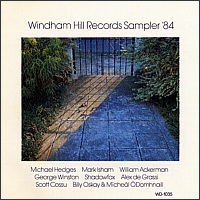 Will Ackerman: I had begun recording in 1975 with my debut guitar album. I had managed to put together a network of 6 independent distributors and was getting a surprising amount of radio airplay out of that recording when those distributors started asking “what’s going to be next of your label.” I didn’t even know I had a label (the Windham Hill name only came into being in 1976 with the awareness that I could release more records into this pipeline) and was stunned to learn that they would distribute anything I brought out. That’s now naive I was.
Will Ackerman: I had begun recording in 1975 with my debut guitar album. I had managed to put together a network of 6 independent distributors and was getting a surprising amount of radio airplay out of that recording when those distributors started asking “what’s going to be next of your label.” I didn’t even know I had a label (the Windham Hill name only came into being in 1976 with the awareness that I could release more records into this pipeline) and was stunned to learn that they would distribute anything I brought out. That’s now naive I was.
Windham Hill became huge. We were doing 30 – 40 million dollars in business annually by 1992 when I sold Windham to BMG in May of that year. I then had a three year non-complete clause and delved into spoken word recordings with a company named Gang of Seven. I absolutely loved that label, but I didn’t have the same success with it that I’d enjoyed with Windham Hill Records.
Virtually on the day that my non-compete with BMG ended in May of 1995 I created Imaginary Road Records with PolyGram, signing a contract with Chris Roberts who had been a friend for many years. Chris Roberts remembers me driving up to the record store he managed in Portland, Oregon (Everybody’s Records) in my Volkswagen bus asking if he’d take 5 copies of my first recording on consignment. Dawn Atkinson, who had been the second most prolific producer for Windham Hill Records was my partner in this.
West River Records is actually a brand new name, created for the release of The Gathering. Imaginary Road Records would have been the ideal name, but because that name is owned by Universal Records via the sale of PolyGram to Universal (and there are still titles in print on that label) we needed to look into another name. My Imaginary Road Studios looks over the West River Valley in Windham County, Vermont and I liked that sound of that.
John: In addition to your role as producer, you are a twice nominated, GRAMMY® Award-winning guitarist. What were some of the turning points in your career, and how did these events affect your career as a producer going forward?
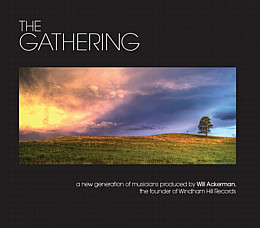 Will Ackerman: The whole thing was a Tiger by the Tail kind of experience. Windham Hill Records grew routinely at 600% a year, sometimes going into even greater growth. There were so many milestones, whether laying Carnegie Hall, playing Red Rocks and the Hollywood Bowl. Touring Europe and playing at the Montreux Jazz Festival. Touring Japan and playing at the Imperial Palace. Our first Gold Record, our first Platinum Record. The list is long and is more a feeling to me than a set of tangible events. It was impossible to hold on to anything, as you reached for it, it was gone because we were moving forward so quickly.
Will Ackerman: The whole thing was a Tiger by the Tail kind of experience. Windham Hill Records grew routinely at 600% a year, sometimes going into even greater growth. There were so many milestones, whether laying Carnegie Hall, playing Red Rocks and the Hollywood Bowl. Touring Europe and playing at the Montreux Jazz Festival. Touring Japan and playing at the Imperial Palace. Our first Gold Record, our first Platinum Record. The list is long and is more a feeling to me than a set of tangible events. It was impossible to hold on to anything, as you reached for it, it was gone because we were moving forward so quickly.
John: In Search Of The Turtles Navel is credited as one of the earliest, founding recordings in the new age genre. What characteristic qualities do you feel define the compositions we recognize today as new age music?
Will Ackerman: I’ve never been a proponent of the term “New Age” to be honest. Going into the reasons for that would be didactic at best. I’d rather talk about what I know, which is Windham Hill. Windham Hill, at least initially, was about acoustic instrumentation. It was about melody and heart.
I’ve learned to take pride in the fact that the music can be listened to enjoyably while washing lettuce in the afternoon (as a woman from Idaho once described to me in a letter) or being the music someone who is soon to leave this earth chooses to listen to in their last hours. Both are honors paid to the musician who provides that pleasure or solace. To me, that is reason enough for being as a person and for Windham Hill Records to have represented a genre unto itself.
John: I read that none of your guitar recordings use standard guitar tuning, which permits an unconventional acoustic sound. Are there any advantages to playing guitar using non-standardized tuning?
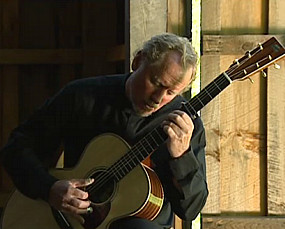 Will Ackerman: I don’t know that there are any particular advantages. Most people would probably say that it’s more bother than it’s worth. I happen to like the sound of open tunings and, after years of contemplating the reasons for my utterly obsessive adherence to constantly changing tunings I’ve finally come to an understanding of my process. I’m playing a trick on myself. By creating a new tuning I am removing intellect completely from the process of “composing.” I simply don’t know the landscape I’m in and so have nothing but emotion to guide me.
Will Ackerman: I don’t know that there are any particular advantages. Most people would probably say that it’s more bother than it’s worth. I happen to like the sound of open tunings and, after years of contemplating the reasons for my utterly obsessive adherence to constantly changing tunings I’ve finally come to an understanding of my process. I’m playing a trick on myself. By creating a new tuning I am removing intellect completely from the process of “composing.” I simply don’t know the landscape I’m in and so have nothing but emotion to guide me.
I’m lost, but in a beautiful, emotionally connected way. I inevitably find a bit of an alpha state and wander about in that landscape until I find various paths which I employ intellect to connect later. So the music is about emotion, not thought. It’s about heart, not mind.
John: New age music is like any music genre by progressing over the years. What do feel makes a good new age or instrumental recording?
Will Ackerman: I listen to all sorts of music. I honestly can’t remember who said it, but I’ve always loved the quote “There are only two kinds of music; good music and bad music.” Obviously I’m not going to pretend to be the arbiter of those definitions tangibly, but I know what I like. I know what I’m looking for as a producer and in these two elements I think this is as close to a Holy Grail as I can offer.
Firstly, does the artist have a musical “voice?” In other words, does this artist sound like everybody else or is there something unique, however hard to pinpoint, in their music. I can hear 2 guitar notes from BB King or Mark Knopfler to know who it is and I can hear two chords from Erik Satie to know who it is.
Secondly, is heart or ego driving the music? This is obviously a judgment call as well, but it’s as clear as can be to me. Maybe another way of asking the question is “am I hearing the truth,” or “do I believe this person?” I have to believe who I’m listening to and investing my heart in, both as a listener and as a producer.
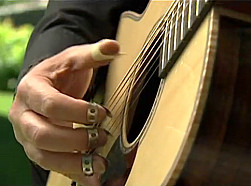 John: Your new West River Records compilation album The Gathering features a lot of great instrumental artists exactly like your highly successful Windham Hill Samplers, which achieved gold or platinum recording status. Do you feel the artist’s songs on The Gathering have the potential for equal prominence?
John: Your new West River Records compilation album The Gathering features a lot of great instrumental artists exactly like your highly successful Windham Hill Samplers, which achieved gold or platinum recording status. Do you feel the artist’s songs on The Gathering have the potential for equal prominence?
Will Ackerman: The record industry is a very different thing today. Even at the major record labels, they refer to 100,000 CDs sold as “the new million.” In other words, the potential of the marketplace even with legal downloads, is probably 10% of what it was. A gold record used to be 500,000 records sold and platinum were 1,000,000. There were a lot of gold and platinum records being handed out in those days, but if we had to wait for achievement of those kinds of numbers today, there would be only a handful of them.
The good news is that the internet can spread the word about good music brilliantly to every corner of this planet. Part of my ambition with The Gathering is to create strength in numbers to some degree. Rather than sit back and let each of these artists fend entirely for themselves, I’ve chosen to move more into the public realm again and, as with the Windham Hill Samplers, say “this is great music… these are great players… these are artists your life will be richer for taking the time to get acquainted with.” I’m doing this interview and others and will not balk at any opportunity to express my faith in these players and in this recording. I genuinely believe we can achieve a much greater visibility together and that we’ve literally just begun.
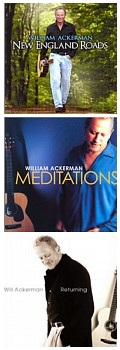 One last point is, I think, important to mention here. The known Windham Hill Records audience is easily identified and we certainly want to let those millions of people know about The Gathering. But what is also heartening to me is the number of emails from kids under 20 I’m getting now. These are kids who are digging through their parents LPs and finding music that they love. I’m guessing that maybe 10 -15% of my emails are from kids in this age range and it’s clearly a growing number and percentage. How great it would be to find a young audience who loves this sort of music, much as my generation found the forgotten American blues players in the late 60’s and 70’s (certainly with the help of the British Invasion). I’ve been contemplating a Gathering sort of recording for some time and now that it’s here I know it’s the right choice.
One last point is, I think, important to mention here. The known Windham Hill Records audience is easily identified and we certainly want to let those millions of people know about The Gathering. But what is also heartening to me is the number of emails from kids under 20 I’m getting now. These are kids who are digging through their parents LPs and finding music that they love. I’m guessing that maybe 10 -15% of my emails are from kids in this age range and it’s clearly a growing number and percentage. How great it would be to find a young audience who loves this sort of music, much as my generation found the forgotten American blues players in the late 60’s and 70’s (certainly with the help of the British Invasion). I’ve been contemplating a Gathering sort of recording for some time and now that it’s here I know it’s the right choice.
John: When selecting an artist’s song for a compilation album like The Gathering, what key elements do you look for in terms of the music qualities?
Will Ackerman: Understand that all the people on The Gathering are people I’ve chosen to produce. These are all people I have the highest regard for as musicians and as human beings. Without being at all lazy, I’ll refer you to my answers a bit earlier on in this dialogue. I need to feel these musicians have a voice that is uniquely theirs and I have to believe that they’re telling me the truth musically.
John: In regards to your production services, you have enlisted engineer and co-producer Tom Eaton. Plus, many of the session musicians in your productions are themselves, award-winning artists who have their own careers. What do you look for when selecting a session artist for a client’s recording?
Will Ackerman: I think you’re asking me how someone ends up being a session player for my productions? The answer is to be the best on the planet and be consistently so and be a genuinely kind, patient, generous human being. Whether we’re working with bassist Tony Levin who’s recorded with John Lennon, Paul Simon, Peter Gabriel, James Taylor and a million others or Steve Holley who’s the drummer for Paul McCartney and Elton John, the people who add to our work here are consummate professionals who are able to pour their hearts into the music and do so in a remarkably ego-less, kind, considerate and caring way.
The criteria for who works here go way past simple talent. Imaginary Road is my home and I’m only letting wonderful people into my home. I don’t care how talented you are; if you’re not able to wear your heart on your sleeve don’t bother to turn up. We use Keith Carlock (Sting and Steeley Dan) as a drummer too along with Arron Sterling (John Mayer and Sheryl Crow). Only last year I met Premik Russel Tubbs who plays sax and wind synths for us.
Premik has become part of the family and has played with Santana, Herbie Hancock, Sting and Billy Joel just to name a few. Violinist Charlie Bisharat and I met when he was playing with Shadowfax on Windham Hill. He and I remain great friends and we work on sessions together often. Charlie Bisharat’s played with Beck, Mary J. Blige, Black-Eyed Peas, Fiona Apple, Michael Jackson, Justin Timberlake and the list goes on.
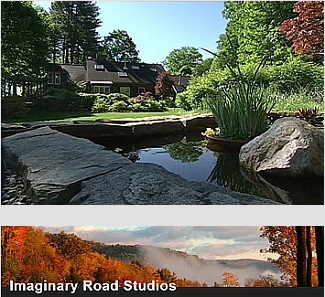 We have a stable of players who are simply too great not to use often: Four time GRAMMY® winning cellist Eugene Friesen just happens to be a neighbor here in Brattleboro and has been a close friend for twenty years now. English horn player Jill Haley drives up from Reading, PA to play for us. Pat Metheny’s percussionist Jeff Haynes has been a dear friend for decades now and lives just over the Green Mountains from here.
We have a stable of players who are simply too great not to use often: Four time GRAMMY® winning cellist Eugene Friesen just happens to be a neighbor here in Brattleboro and has been a close friend for twenty years now. English horn player Jill Haley drives up from Reading, PA to play for us. Pat Metheny’s percussionist Jeff Haynes has been a dear friend for decades now and lives just over the Green Mountains from here.
Trumpet and Flugelhorn player Jeff Oster has a place in Vermont and we get him in here for sessions as often as possible; singer Noah Wilding was crazy enough to marry me so she’s pretty much local too. Jeff Pevar, who records and tours with everyone from Ray Charles to Crosby, Stills and Nash, does guitar work for us too. We’ve just added the incredible talents of Gus Sebring, French horn player for the Boston Symphony to our list of friends. The talent pool we draw upon is considerably larger than this, but you get the point.
John: Let’s say for example I am an artist scheduled to have my music produced by you at Imaginary Road Studios. What can an artist expect when they arrive, and is there a set schedule or itinerary for the duration of an artist’s visit?
Will Ackerman: There is absolutely nothing that is formulaic here. Projects have taken days or months. No two projects are the same. There is a tremendous amount of dialogue that takes place between me and the artist before sessions begin and out of that a plan very specifically designed for the project emerges.
This isn’t a matter of someone simply turning up and starting the recording process. By the time we begin we’ve probably selected 80- 90% of the material, have worked out the arrangements and have some ideas as to what the additional instrumentation will be. That said, we’re never completely right. Some of the music will inevitably change and evolve. You have to really listen to what you’ve recorded and hear what’s it’s telling you.
 Part of producing is knowing when your preconceptions are no longer valid, but that the music has evolved into something new. It’s part of my job to realize when we have to abandon preconception and allow the music to instruct us. Some of the best music comes about by being open to change and allowing spontaneity to be in charge when it’s productive.
Part of producing is knowing when your preconceptions are no longer valid, but that the music has evolved into something new. It’s part of my job to realize when we have to abandon preconception and allow the music to instruct us. Some of the best music comes about by being open to change and allowing spontaneity to be in charge when it’s productive.
John: When you are in a recording session, do you find yourself constantly motivating an artist in the desired direction, or do you and the artist connect automatically?
Will Ackerman: Once again, John, every person and every session is different. Thankfully, that is the case as the newness keeps me on my toes and aware.
John: How do you make an emotional connection with an artist Will?
Will Ackerman: I’m a musician so I know what it takes to make music that is connected to emotion. How people get there varies greatly. What doesn’t change is the trust that has to be established. If people are going to allow vulnerability into their hearts and music they have to trust me and it’s my responsibility to make that possible for them.
John: Do artists ever have any common misunderstandings about your occupational or leadership role as producer?
Will Ackerman: There is nothing dictatorial in the role. I do have strong opinions and I’m not reticent to express those opinions, but at the end of the day, I’m working for the musicians and their needs and wishes are the ultimate arbiter of where we’re headed.
John: Have there been artists you simply can’t work with?
 Will Ackerman: Yes, but thankfully that was long ago and my instincts about people and my understanding of myself (including a realistic evaluation of my own strengths and weaknesses) have made for a decade of very happy encounters. It’s hard work and very stressful, so we try not to record for more than a couple of days in a row.
Will Ackerman: Yes, but thankfully that was long ago and my instincts about people and my understanding of myself (including a realistic evaluation of my own strengths and weaknesses) have made for a decade of very happy encounters. It’s hard work and very stressful, so we try not to record for more than a couple of days in a row.
Learning how to keep spirits up even when everyone is very tired and spent is an important part of the process, but simply knowing that everyone needs rest to be productive and happy is a surprisingly important piece of the puzzle. This is where being a bit older actually helps. One comes to understand their own limitations better which is actually more freeing than limiting.
John: You have produced music for esteemed artists like George Winston, Michael Hedges, Liz Story, Alex de Grassi, and many more top-ranked artists in the music industry.
This may be a hard question to answer Will, but do you believe some of your more recent artists, including debuting artists, have the potential to reach the same success? And if so, do you have any advice or a strategy you would offer to artists wanting to improve their performance skills or advance in their music career?
Will Ackerman: I think it’s a matter of scale to some degree. CD sales are way down and legal downloads don’t begin to compensate for the real losses in pirated music. At the same time we’ve gotten to the point where there is very little a major label knows about the current music business that the average internet-savvy teenager doesn’t know.
In fact the average teenager may be far hipper and more contemporary and imaginative than the guys who are still at desks at the big companies. One line I’ve used in talking with people is why give away 90% of the profits to an organization that doesn’t understand the marketplace any better than the average teenager?
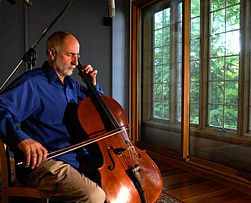 I don’t think this is an exaggerated perspective at all and I think the question is valid. We see established acts reaching the time of contract expiration with major labels and just leaving the majors and creating their own labels with web presence and touring being focal points of their endeavors.
I don’t think this is an exaggerated perspective at all and I think the question is valid. We see established acts reaching the time of contract expiration with major labels and just leaving the majors and creating their own labels with web presence and touring being focal points of their endeavors.
Artists recording on their own labels are keeping 100% of the profit rather than getting maybe a 12% royalty from a major label. Keeping an eye on budget becomes more important than ever (as there are fewer sales and less gross income) and the objective now seems to be about creating a constant internet presence rather than making one huge marketing effort in order to recoup the investment in recording or video etc.
Radio exposure is still important, especially with all of the internet music outlets. Getting reviewed, as always, matters in a big way and given all the websites devoted to niche markets there is more opportunity for attention than ever. Ultimately, however, it’s all about harnessing the internet and touring to cement a relationship with an audience and hone one’s craft.
I recently met a young woman name Kina Grannis who created this incredible video for YouTube. It took 3 months to make the first 10 seconds of this and nearly 2 years to finish. It’s a stop motion video shot against a constantly changing backdrop of paintings done with jellybeans. You heard me right, jellybeans. The video is brilliant, as is Kina, and I believe she’s now had something like ten million hits on this YouTube single. Jelly Belly heard about this and are now underwriting her touring and she just finished a tour of major markets in Europe, then traveled to the far east and Australia as well as the U.S. All of this fueled by a very clever video that her friends help her create.
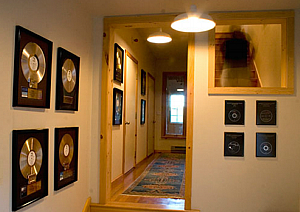 In looking at the New Age market, I see people still doing a video of a babbling brook and posting it as if there is anything compelling in this. It was novel in 1984 when I did the world’s first digital audio laser discs with Pioneer Home Video and Paramount, but that’s been done and done and done. Be clever. Take a chance. Do something different. You may fail, but it’s ordained that you’ll fail by being one of a million people doing the same thing.
In looking at the New Age market, I see people still doing a video of a babbling brook and posting it as if there is anything compelling in this. It was novel in 1984 when I did the world’s first digital audio laser discs with Pioneer Home Video and Paramount, but that’s been done and done and done. Be clever. Take a chance. Do something different. You may fail, but it’s ordained that you’ll fail by being one of a million people doing the same thing.
In terms of live performance, George Winston and I would play a benefit for any 5 watt radio station in the U.S. who would give us airplay and we were willing to work from the ground up. I can remember audiences of 6 people where I gave everything I had.
I think you have to have that commitment and the talent to offer something very special to the world, but what is learned on the road is valuable on so many levels and connects you with your audience.
Getting a sense of an audience’s reaction to a new piece, getting a feel for what’s working and what’s not (both for you and for the audience), is something most effectively done in front of a live audience. They’ll tell you a lot about what will be effective in the marketplace. So in answer to your question; yes artists in any genre can still break out onto the world stage, but to really succeed these days you almost certainly have to have brilliant and original (not necessarily expensive) videos and I continue to believe that live performances are an invaluable training ground.
John: Technology has undoubtedly changed since the time when you first began to produce. What are some examples of how new technology changed the way you produce music in the studio today?
Will Ackerman: Fundamentally, the only deep change is digital and I do a great deal to refrain from a complete embrace of what is contemporary. I’m convinced that digital is not all for the best, though the manipulation of digital information in editing, for instance, is just simply brilliant and is an important part of our process here. My principal microphones are VERY expensive matched pairs of Neumanns. What we do with microphone positioning and configurations are literally unique and very much on the cutting edge.
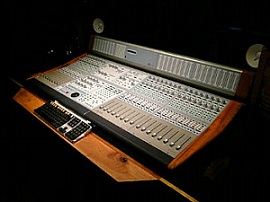 Despite the fact that we’re understandably regarded for our audiophile recordings, our methods are bordering on heretic. I like that. The Hemmingway preamps are rare and a brilliant part of our arsenal. I sometimes use analogue process even in the highest quality digital recordings if I feel there is something to be gained. My own Returning album, which won the GRAMMY® in 2005, was run through Studer heads as part of mastering, for instance.
Despite the fact that we’re understandably regarded for our audiophile recordings, our methods are bordering on heretic. I like that. The Hemmingway preamps are rare and a brilliant part of our arsenal. I sometimes use analogue process even in the highest quality digital recordings if I feel there is something to be gained. My own Returning album, which won the GRAMMY® in 2005, was run through Studer heads as part of mastering, for instance.
And there’s Tom Eaton. Tom’s been with me for over a year now and is simply the most talented engineer I’ve known in my entire life. A pianist himself (he actually plays a range of instruments) Tom brings an academic knowledge of music to the room that my intuitive side is grateful for. I was recently having trouble explaining to Tony Levin what I wanted in a piece and Tom took a minute to talk with me and then hit the talk back and said to Tony, “Tony, Will’s hearing it on the one.” It would have taken another 10 minutes for me to finally explain what I was hearing.
I’ve come to respect Tom’s opinion as much as anyone I have ever known. Increasingly he and I are co-producing and the recordings are the better for it. Tom knows the Windham Hill Records catalog better than I do and this history also informs his understanding of where we’re going and why. He respects my position in the producer’s chair, but he always has my ear and no one in my history has been able to command more attention with a gentle, “I was just wondering if.” The man’s simply brilliant and has brought more to my production environment than anyone in my history. He’s also a wonderful, bright, funny human being who has become family in a very short while.
John: You have a one of a kind Steinway piano, and other high-tech equipment at your studio. Is having the highest quality equipment available for artists to use during their visit, one of the most essential components for your productions?
 Will Ackerman: Our Steinway is simply magical. I have never recorded anything that compares to it in my entire career. It came here by chance a decade ago as a rental and it simply never left. I just told the owner that he’d have to come up with a price. I called him and told him this and took the rest of the day off and nailed the load-in doors shut and resided the building. He had to sell it to me. When you think of how important the piano has been to my career and how much piano recording I’ve done and you realize that I’m begin utterly honest when I tell you that this is the finest sounding recording piano I’ve ever worked with, that’s a pretty dramatic statement.
Will Ackerman: Our Steinway is simply magical. I have never recorded anything that compares to it in my entire career. It came here by chance a decade ago as a rental and it simply never left. I just told the owner that he’d have to come up with a price. I called him and told him this and took the rest of the day off and nailed the load-in doors shut and resided the building. He had to sell it to me. When you think of how important the piano has been to my career and how much piano recording I’ve done and you realize that I’m begin utterly honest when I tell you that this is the finest sounding recording piano I’ve ever worked with, that’s a pretty dramatic statement.
There are many quality products that I don’t need. We actually don’t have a lot of toys here. It’s very fundamental stuff. I have some very purist ideas about how to record instruments and it begins with the fact that I want to be inside the instrument. I want to be more proximate to the instrument than almost any producer on the planet.
I want to hear guitar recorded so that it sounds as it does to me when I’m holding it. I want the piano to move from left to right, bass to the high notes and feel like you’re sitting at the piano. I don’t want to soften edges a lot. I don’t want the recordings to be dreamy even if the music itself is. I want the listen to be deeply aware that this is a piece of wood and steel they’re listening to. I think this is partly why I just shy away from keyboards (however good their sampling has become) so much. I love the world of acoustic music. It’s what drives me, and I’m always searching for ways to get even closer and more detailed in my listening and recording. I’ve recently made a discovery about cello, for instance, that pleases me a great deal.
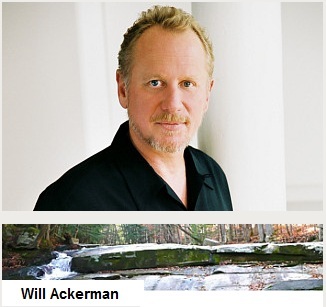 John: Thank you again for giving me and everyone a moment of your time Will. I have a deep respect for your work, and I hope we have a chance to interview again in the future. I am sure there will be fans and artists worldwide reading the newest Will Ackerman interview in 2012. Is there anything you would like to express to the artists and fans that have supported you over the years?
John: Thank you again for giving me and everyone a moment of your time Will. I have a deep respect for your work, and I hope we have a chance to interview again in the future. I am sure there will be fans and artists worldwide reading the newest Will Ackerman interview in 2012. Is there anything you would like to express to the artists and fans that have supported you over the years?
Will Ackerman: First of all, I’d like to say thank you to everyone who agreed to be on The Gathering. My deepest thanks to these wonderfully talented and lovely human beings;
Masako, Paul Jensen, Stanton Lanier, Kathryn Kaye, Rudy Perrone, Fiona Joy Hawkins, Jeff Oster, Dean Boland, Frank Smith, Todd Boston, Rocky Fretz, Shambhu, Kori Linae Carothers, Peter Jennison, Denise Young, Devin Rice and Erin Aas, Lawrence Blatt, Ronnda Cadle, Ann Sweeten, Ken Verheecke and Patrick Gorman.
My thanks too to all the musicians I’ve been blessed to work with. There are musicians I’m producing now and musicians I’ve just finished producing that we didn’t have room for on The Gathering. I hope our success with this project is such that we’ll have a chance to release a second volume.
I hope your readers will support The Gathering. We purposefully decided to make this affordable. At $12 and 74 minutes it’s a bargain and getting turned on to 22 new musicians is a pretty great experience in life. We hope you’ll think of The Gathering as gifts and just a thank you to those in your lives. We’ll be deeply grateful for your help. Will Ackerman.
Visit WilliamAckerman.com and the Imaginary Road Studios. You can sample or purchase The Gathering at CDBaby.com. The majority of artists Will mentioned on The Gathering compilation release have album reviews at this site. Visit my pages dedicated to Will Ackerman and artist tags located in a right hand module. Photos are courtesy williamackerman.com.
